LUTHER COLLEGE VISION 2025 A SOLID FOUNDATION
Strategic Plan 2022-2025
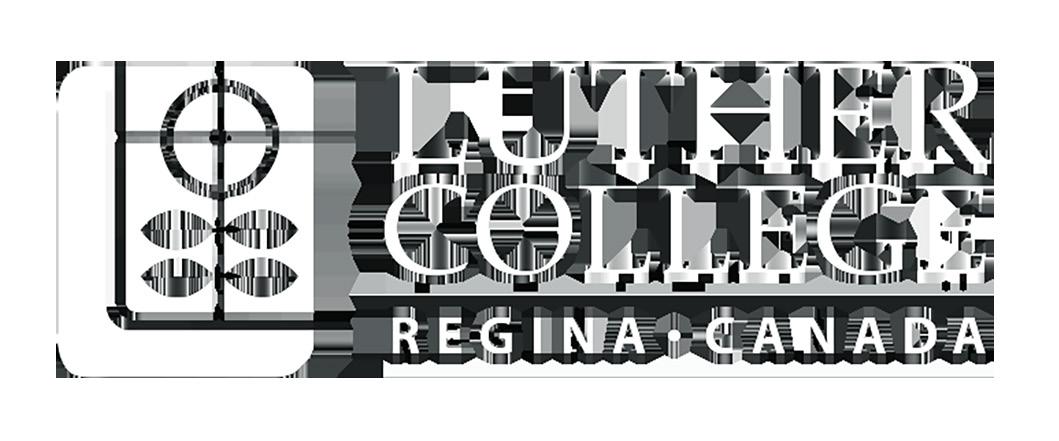
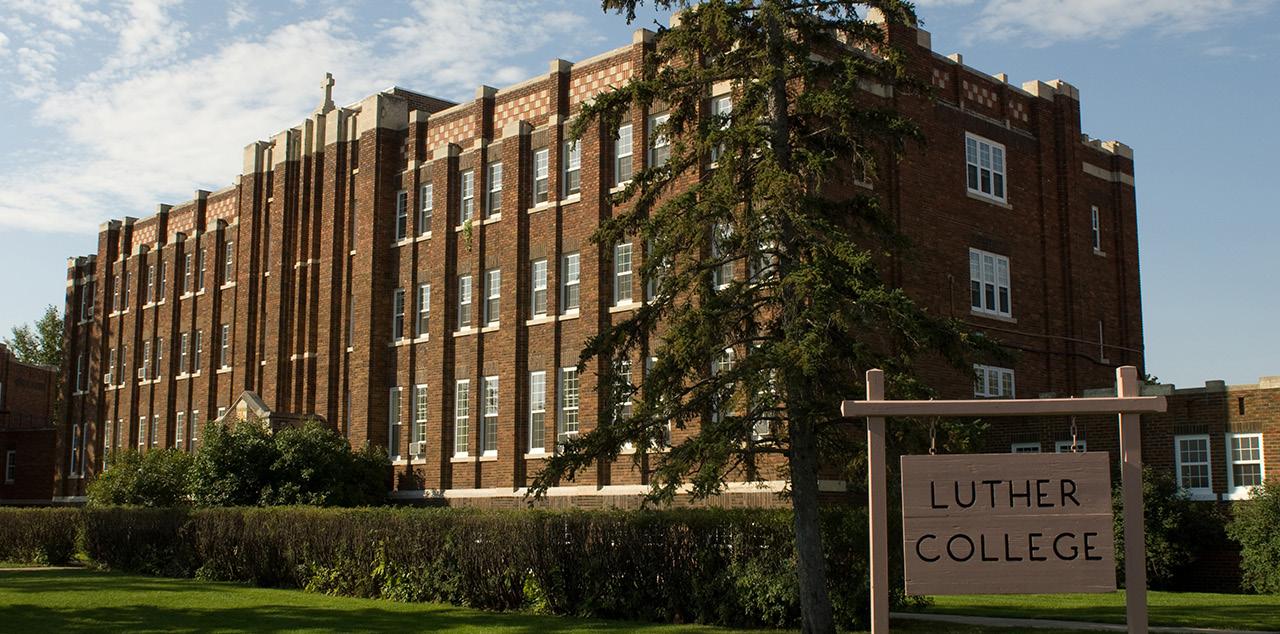
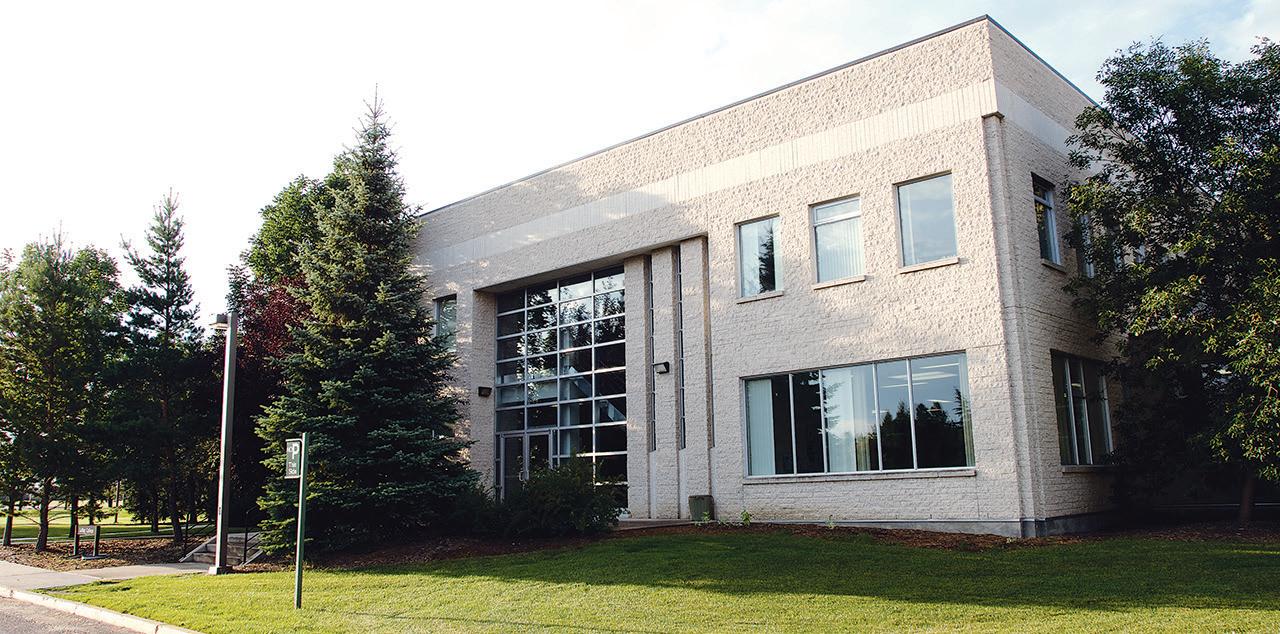
TABLE OF CONTENTS Background & History.............................................................................................................. 4 Mission/Values/Vision ............................................................................................................. 6 Process and Timeline ............................................................................................................... 7 Strategic Themes ...................................................................................................................... 8 Strategic Initiatives .................................................................................................................. 9 Prioritized Initiatives .............................................................................................................. 10 Appendix A: Possible Operational Actions ........................................................................ 12













A city’s best and greatest welfare, safety, and strength consist in its having many able, learned, wise, honourable and well-educated citizens.”
“
- Martin Luther
BACKGROUND AND HISTORY
Luther College is a liberal arts educational institution distinguished by the Lutheran heritage of excellence in scholarship, freedom to pursue the truth, and an awareness of living in God’s grace.
EARLY YEARS
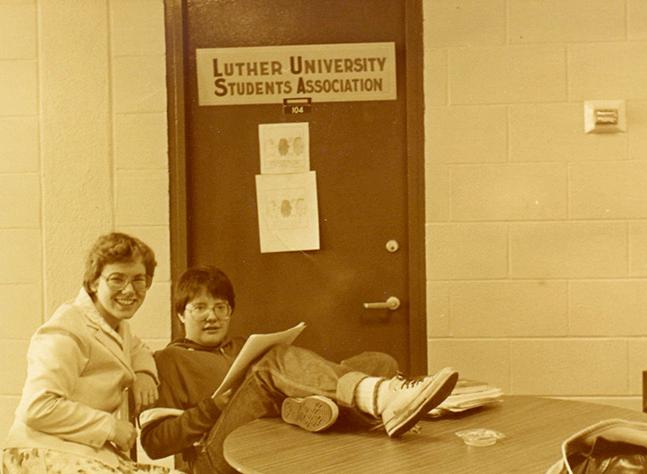
Luther College serves students of all cultures, religions, and orientations by nurturing intellectual, emotional and spiritual growth. Luther College provides the highest quality of teaching and fosters outstanding research while presenting and challenging a broad spectrum of values and viewpoints. Luther students are well-prepared to become leaders as caring, ethical, critically engaged citizens.
In 1913, Lutheran settlers around Melville, Saskatchewan were inspired by Martin Luther's principles that education was not only for clergy, but for all people to serve God more fully in all aspects of life. Existing schools in Saskatchewan were few and did not adequately prepare students for university. The Lutheran Church also needed educated ministers and teachers in Western Canada. These needs motivated the settlers to set up a Christian school. Luther Academy was established in Melville to provide high-quality education in a Christian context.
In 1926, Luther Academy moved to its present location in Regina on Royal Street. The name of the school was changed to Luther College, and offered grade eight through to university classes. By 1938 the girls’ dorm was built, and a dedicated chapel space was added.
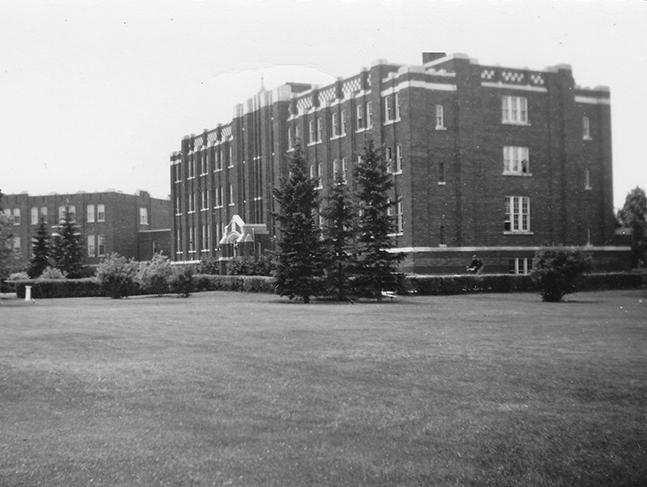
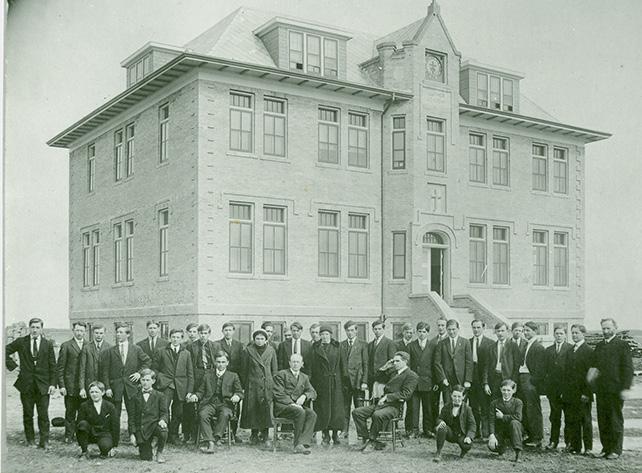
With over 200 students attending Luther by 1951, there was a need for a gymnasium. The space now known as the Merlis Belsher Heritage Centre was built. During these years, many students from rural communities throughout Saskatchewan attended for their high school and university educations. By 1956, a much-needed classroom wing was added to accommodate the higher enrollment.
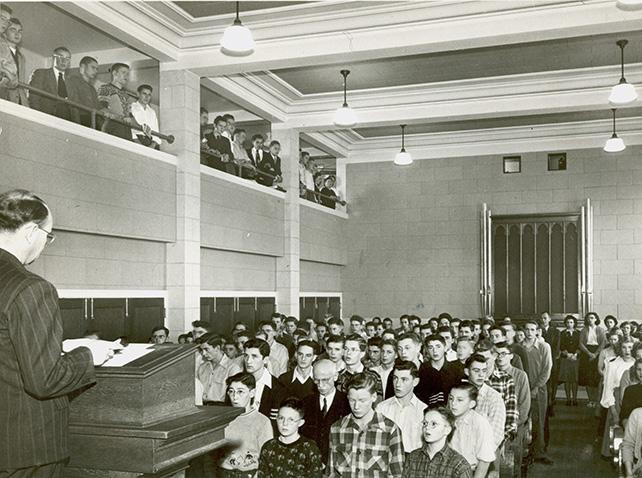

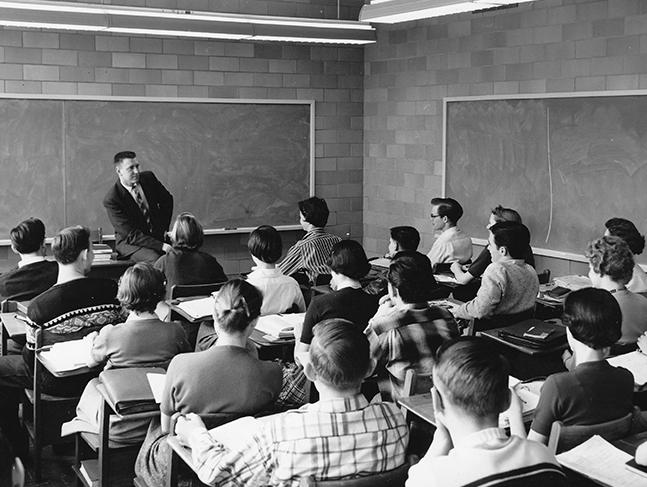
LUTHER COLLEGE Strategic Plan 2025 4
In the mid-60s, Luther College received an offer to federate with the Regina Campus of the University of Saskatchewan (now known as the University of Regina). By 1968, the Federation Agreement was finalized, and construction began on buildings at the university campus.
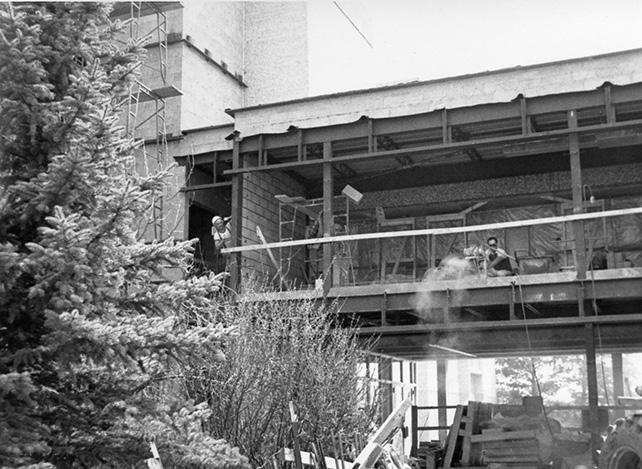
In 1969, Luther College, Regina was incorporated by Saskatchewan legislative statute (which was amended in 1996 and again in 2018). It is during this time that Luther College became affiliated with the Evangelical Lutheran Church in Canada.
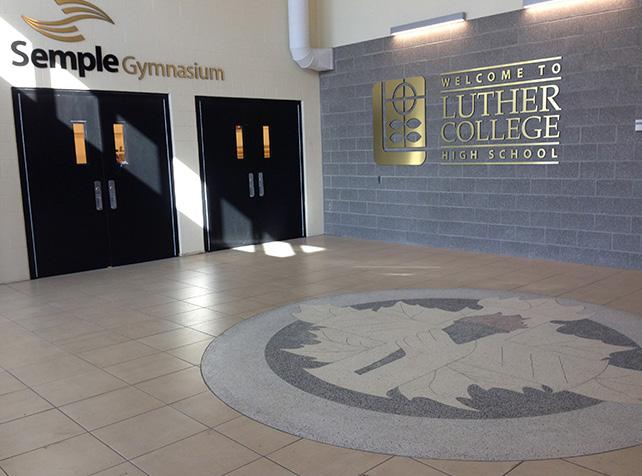
1971 was a milestone year, with Luther College now operating a liberal arts college offering post-secondary education on the University of Regina campus, as well as a historical, independent high school offering grades 9 through 12.
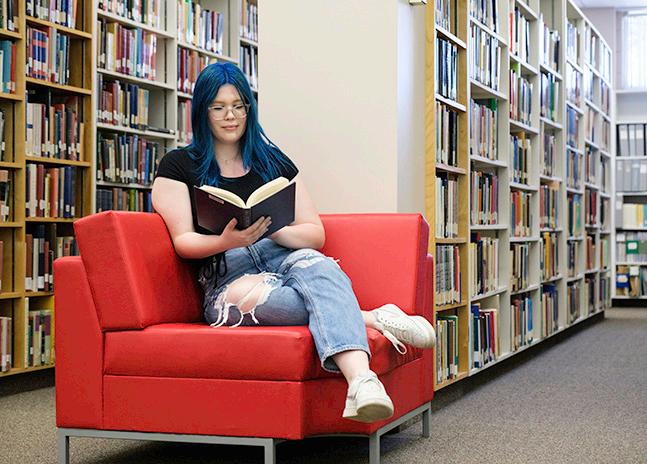
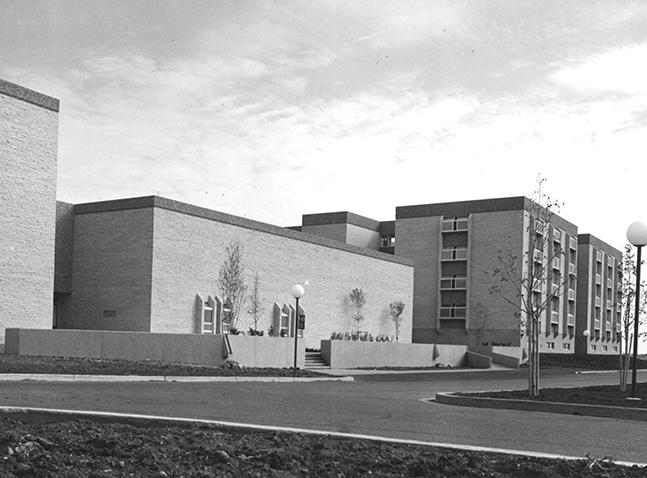
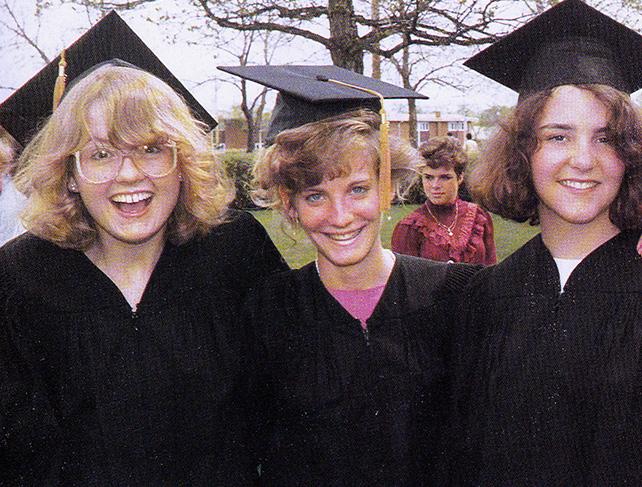
In 1976, the High School added an art room, followed by a classroom wing and library in 1988. During this era, Luther’s university campus offered courses in English, Philosophy, Psychology, Sociology, Mathematics, and Religious Studies. In the early '90s, the university buildings were expanded with an academic wing, new library, chapel, classrooms, and offices.
PRESENT DAY
Luther College High School was the first in the province to offer the International Baccalaureate program, which continues to the present day. In the mid-2010’s, the College marked its 100th anniversary and a significant renewal and expansion to the High School with a new gym, classrooms, and common area.
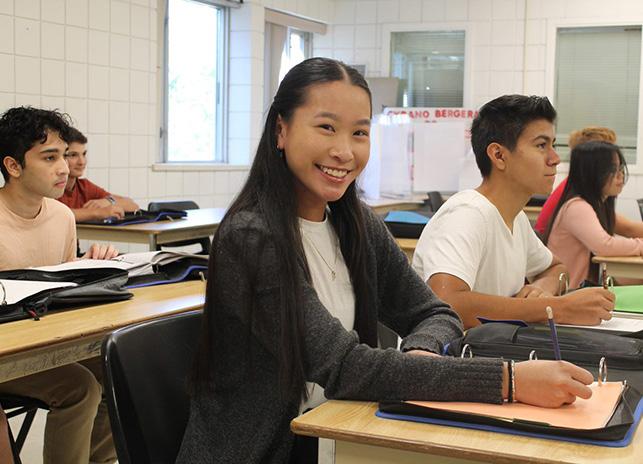
With the outbreak of the COVID-19 global pandemic in 2020, Luther College shifted to remote teaching and remote operations in late March. Staff transitioned to working from home. Faculty members quickly learned how to deliver courses remotely through Zoom. Only the student residences and food services remained open for the small number of students living on each campus.
Post-pandemic, Luther Colleges looks to a new future with a strategic plan that even further unites the two campuses into one vision.
LUTHER COLLEGE Strategic Plan 2025 5
MISSION
Luther College prepares students to be compassionate, creative, and critical thinkers, through academic excellence and a community of care that is rooted in our call to love and serve our neighbours.

VALUES
Rooted and Open
We are rooted in the Lutheran intellectual tradition and open to insights from other religious, spiritual, and secular traditions. In our Canadian context, we feel especially called to recognize and value Indigenous worldviews, knowledge and perspectives.
Excellence
• innovation, creativity, exploration, and critical thinking
• the desire to do our best in everything that we do
Compassion, Care and Stewardship
• care for all entrusted to us — students, one another, our resources, and the world we live in

Equity, Diversity, and Inclusion
• safety, acceptance, respect for all while valuing differences in individuals and among people(s)
Integrity
• honesty, transparency and accountability
VISION
Luther College makes transformative change for a more grace-filled, just, and joyful world.
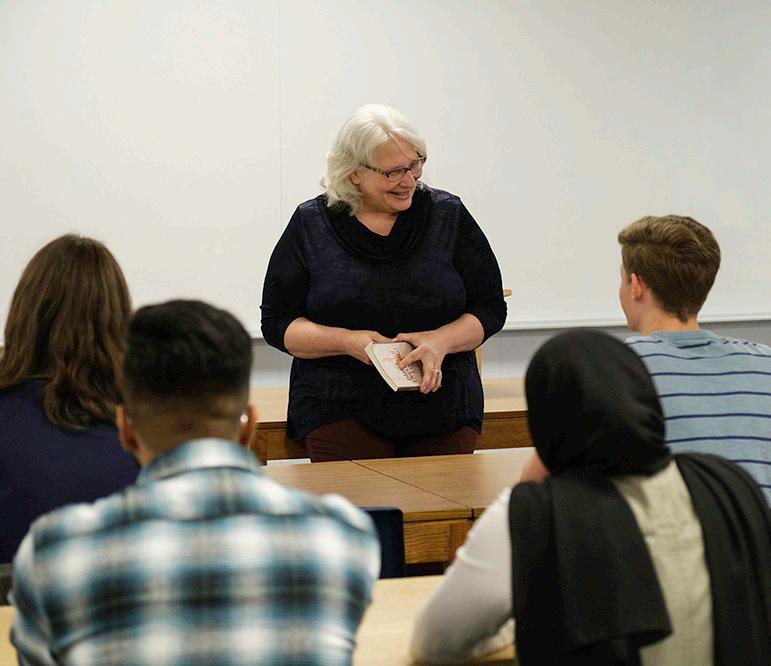
LUTHER COLLEGE Strategic Plan 2025 6
STRATEGIC PLANNING VISION 2025
Luther College developed a strategic planning process that incorporated the planning cycle of both Luther College High School and Luther College at the University of Regina into one. The primary benefits of a single strategic plan for both campuses are that this would provide leadership with a holistic view of the institution, align resources and initiatives when necessary, and to leverage the strategic advantage of having both a secondary and post-secondary campus within the same city. This strategic planning process also pays particular attention to long-term planning right after the COVID-19 pandemic while making a significant shift in the organization’s culture.
The process focused on communicating the following definition of strategy to the organization.
This helped clarify the importance of identifying what are the most unique and valuable activities our employees can focus on, and how the organization can ensure efforts are directed towards those. The last component of this definition is that it allows a trade-off conversation of what activities are no longer value- added and should be stopped, held, or postponed.
STRATEGIC PLANNING PROCESS
This strategic planning process was initiated in September 2021.
The initial four months of the planning was focused on setting up the Strategic Planning Oversight Team (SPOT). SPOT was a collection of senior leaders from both campuses who helped develop the strategic planning governance, process, and milestones. SPOT had numerous input and feedback touchpoints with the employees. They then engaged the various external stakeholders including parents, alumni, students, and others.
STRATEGIC PLANNING ENGAGEMENT TIMELINE
Below is the engagement timeline for the strategic planning process. All activities have been completed.
Employee prioritization survey
SPOT prioritization
Board approval of updated Vision, Mission and Values
Initial prioritization draft
LCHS Administration and College Leadership Group review
Employee review
Board submission
October 2022
November to January 2023
December 2022
January 2023
February 2023
March 2023
March 2023
LUTHER COLLEGE Strategic Plan 2025 7 STEP 0 Plan to Plan STEP 1 Vision, Mission, Values STEP 2 Strategic Themes STEP 3 Environmental Scan STEP 4 Strategic Initiatives STEP 5 Initial Strategic Plan STEP 6 Finalized Plan STEP 7 Communication
“Strategy explains how we will create unique value for the people we serve by aligning our activities and choosing what we should not do.”
ACTIVITY TIMELINE
STRATEGIC THEMES
Strategic themes are the value-added areas of focus which Luther will prioritize over the next few years. Setting these strategic themes can help Luther focus on the most important initiatives. These strategic themes were set by SPOT and were validated through employee and stakeholder engagements.
These are the five strategic themes Luther College will focus on:
ACADEMICS THE LUTHER ROSE
Pursuing academic excellence through an enriching, innovative, and student-centred experience.
STUDENTS EMPLOYEES
It must be noted that the Luther Rose is at the centre of the five strategic themes. This highlights the fact that the Lutheran faith and tradition are at the centre of its identity and are part of what makes it unique.

Supporting the whole student to realize their purpose, passion, and potential in the world.
Fostering a diverse, trustworthy, and respectful workplace with engaged faculty and staff.
SUSTAINABILITY
Stewarding our resources to create a sustainable future.
COMMUNITIES
Developing a life-long connection with our communities.
LUTHER COLLEGE Strategic Plan 2025 8
STRATEGIC INITIATIVES
After intensive consultations and engagements, the SPOT team was able to compile a significant amount of strategic ideas and proposals. SPOT then proceeded to classify these ideas into eleven strategic initiatives.
ACADEMICS
Unique Blend of Curriculum and Content
Ensure that Luther is continually refining its course offerings and content to best serve its students.
Diversified Teaching Methods
Continually explore program pedagogy and delivery modes.
STUDENTS
Student Wellness
Support the development of the whole person and promote the well-being of each student.
Student Success Support
Provide opportunities to develop the skills they require to be successful in their academic careers.
EMPLOYEES
Employee Wellness
Encourage employees to improve and maintain their overall health and well-being and to create a culture of wellness.
Employee Development:
Enhance faculty and staff knowledge and abilities to support Luther’s vision.
SUSTAINABILITY
Financial, Operational, and Infrastructure Sustainability
Ensure that Luther pursues activities and initiatives that will promote ongoing operational sustainability.
Environmental Sustainability
Promote a culture of environmental responsibility and engage in innovative green initiatives.
COMMUNITIES
Equity, Diversity, Inclusion, and Indigenous Engagement
Promote a culture of diversity and reconciliation.
Community Development and Service
Develop and strengthen community relationships through service.
Culture of Philanthropy
Promote a culture of philanthropy that is focused on developing and sustaining strong donor relationships and shared responsibility for development.
LUTHER COLLEGE Strategic Plan 2025 9
URGENT & CRITICAL
STRATEGIC PRIORITIZED INITIATIVES
VISION 2025: A SOLID FOUNDATION
STUDENT RECRUITMENT & RETENTION STRATEGY
WHAT LEAD WHEN
1.1 Coordinated recruitment strategy for Luther College
a. Academic recruitment & retention
b. Residence recruitment & retention
c. Marketing strategy
President of Luther College Start 2023
OPERATIONAL REVIEW, INFRASTRUCTURE ASSESSMENTS, AND FUNDRAISING
WHAT LEAD WHEN
2.1 Operational cost review
2.2 Capital building assessment (e.g., LCHS 1926 building assessment)
2.3 Fundraising focus
a. Student financial aid and bursaries
b. Existing program offset and debt reduction
ACADEMIC REVIEW
Director of Finance Start 2023
Director of Finance Start 2023
Director of Development Start 2023 URGENT & CRITICAL
CRITICAL
WHAT LEAD WHEN
3.1 LCHS academic review
a. Course offerings and student course load review
b. IB expansion (e.g., career-related programme)
c. Experiential / service learning (e.g., outdoor school program)
3.2 LCUR academic review
a. Teaching and research inventory
b. Bundle offerings and first-year supports
c. Experiential / service learning (e.g., NVSSN)
d. Faculty renewal
3.3 President’s Strategic Advisory Committees focused on:
a. Transition to university
b. Indigenous engagement (e.g., Project of Heart)
c. Sustainability (e.g., maker space, green wave monitoring)
d. Volunteerism and service (e.g., NVSSN, service days)
Principal of High School Start 2023
Dean of University Start 2023
President of Luther College Start 2023
LUTHER COLLEGE Strategic Plan 2025 10
PRIORITIZED INITIATIVES
VISION 2025: A SOLID FOUNDATION
STUDENT WELLNESS
WHAT LEAD WHEN
4.1 Student wellness and engagement
a. Student wellness and engagement programming (e.g., student clubs and events)
b. Wellness resourcing and engagement (e.g., psychoeducational assessment)
c. Wellness and engagement initiatives (e.g., mental health and spiritual growth)
EMPLOYEE WELLNESS
WHAT
5.1 Comprehensive workload assessment
a. Faculty and staff
President of Luther College TBD
Director of Human Resources TBD
LUTHER COLLEGE Strategic Plan 2025 11
CRITICAL
LEAD
WHEN
CRITICAL
APPENDIX A: Strategic Initiatives
POSSIBLE OPERATIONAL ACTIONS
ACADEMICS
Both Campuses
Unique Blend of Curriculum and Content
• Expand on existing environmental sustainability programming
• Explore a unique blend of content and teaching methods
High School Campus
•Expand the International Baccalaureate program
•Review student course loads
•Develop cohort bundling
•Review the current curriculum
-Review math courses
-Add arc midpoint computation
-Review Language courses
-Explore TESL or IELTS
-Explore adding electives
-Invest in STEM and robotics lab
ACADEMICS
Both Campuses
Diversified Teaching Methods
• Increase experiential and applied learning
• Incorporate collaborative teaching
STUDENTS
Both Campuses
Both Campuses (continued)
• Incorporate international and interdisciplinary experiences
• Continue to focus on small class sizes
Student Wellness
• Expand student wellness support
• Develop wellness education and workshops
• Foster a sense of community among the student body
• Improve residence programming
- Allow pets
High School Campus
• Invest in a mental health and wellness centre
- Expand access to counsellors
- Recruit life coach
- Focus on spiritual formation
- Focus on Christ-centred education
- Explore alternative therapies
University Campus
• Promote the Philosophy, Politics and Economics program
• Limit courses and focus on quality
• Enhance bundles
• Provide community-focused courses
• Develop new micro-credentials
• Develop Luther stewardship program
• Develop a partnership with the University of Regina business faculty
• Enhance research excellence
High School Campus
• Develop an outdoor school program
University Campus
• Explore delivery modes and teaching modalities
High School Campus (continued)
• Develop intramural sports and athletics
- Further explore non-RHSAA sanc tioned sports
• Continue with bus service
University Campus
• Develop engagements day students
LUTHER COLLEGE Strategic Plan 2025 12
POSSIBLE OPERATIONAL ACTIONS APPENDIX A: Strategic Initiatives
STUDENTS
Both Campuses
Student Success Support
• Expand academic advising and support
- Expand individual tutoring
• Assist students with transition (e.g., career advice)
• Continue improving the library services and involvement of the library in student learning
EMPLOYEES
Both Campuses
High School Campus
• Focus on enabling student technological abilities
• Provide inclusive and accessible classroom furniture
University Campus
• Enhance the first and second year supports
- Expand the student success program
- Recruit student engagement and success coordinator
Employee Wellness
• Develop a comprehensive plan to address employee burnout
• Encourage work-life balance
• Support employee wellness
• Invest in employee and employee experience
• Provide flexible workplace
• Increase focus on mental wellness
• Improve employee culture
High School Campus
• Continue with wellness days
• Explore a four-day teaching week
• Explore the possibility of work being done during the school day
Employee Development EMPLOYEES
Both Campuses
• Employee training
- Provide customer service training
- Provide cross-training for staff
- Provide professional development opportunities
- Continue Violent Threat Risk Assessment training
Both Campuses (continued)
• Recruit more HR supports
• Hire enough staff to do the work
• Provide employee recognition
University Campus
• Evaluate teaching load for tenuretrack members, members with heavy research, supervisory or other commitments
• Provide a staff room or common room
University Campus
• Support faculty for teaching and research
- Enhance research excellence
- Engage sessionals in research
- Engage students in research
LUTHER COLLEGE Strategic Plan 2025 13
POSSIBLE OPERATIONAL ACTIONS APPENDIX A: Strategic Initiatives
SUSTAINABILITY
Both Campuses
Financial, Operational, and Infrastructure
• Strengthen the connection between both campuses
- Develop opportunities for students on both campuses to interact
• Develop an enrollment strategy for both campuses
- Explore high school tuition reduction or forgiveness
- Explore university scholarships
SUSTAINABILITY
Both Campuses
Both Campuses (continued)
Sustainability
- Expand the future Luther Student programs and spend a days
- Develop youth leadership
- Develop Luther’s brand recognition further
- Demonstrate the Luther Advantage
• Develop new revenue streams
- Invest in a daycare facility
- Invest in pub and catering services
High School Campus
• Increase partnerships with elementary schools
• Invest in an Arts Centre
University Campus
• Share resources with other Federated Colleges
• Develop LCUR residence partnerships
Financial, Operational, and Infrastructure Sustainability
• Develop a green campus
- Expand a recycling and composting program
- Develop a share equipment repository
- Develop a maker space
- Develop community rentals
COMMUNITIES
Both Campuses
High School Campus
• Invest in solar panels
• Address existing infrastructure issues
- Address on Royal Street appearance
- Renovate facilities to enhance function and aesthetics
- Cafeteria renovation
- Dorm renovation
Equity, Diversity, Inclusion, and Indigenization
• Promote Indigenization
- Engage Elder knowledge keeper
- Recruit Indigenous Engagement Facilitator
- Focus on Truth and Reconciliation
Both Campuses (continued)
• Improve diversity
- Increase diverse hiring
- Increase student diversity
- Increase employee diversity
University Campus
• Explore Open Education Resources initiatives
LUTHER COLLEGE Strategic Plan 2025 14
POSSIBLE OPERATIONAL ACTIONS APPENDIX A: Strategic Initiatives
COMMUNITIES
Both Campuses
Community Development, and Service
• Enhance the alumni relationship
- Facilitate alumni services and events
- Provide alumni discounts for courses
• Explore community projects
- Enhance in a greenhouse and community garden
- Invest in a community track, tennis court, and pool
• Improve customer service to the Luther community internally and externally
• Develop national, global international connections (IAU, ESL, etc.)
COMMUNITIES
Both Campuses
Both Campuses (continued)
• Enhance the culture of community service and engage students in community impact initiatives
High School Campus
• Develop mission and service trips further
• Leverage traditions to build community and strengthen connections
• Promote Christian values
• Promote international-mindedness
• Pursue EAL Spring and Summer camps
Culture of Philanthropy
• Enhance the culture of philanthropy
- Enhance the development team
- Raise funds for university scholarships
- Raise funds for the bursary and financial aid
University Campus
• Develop the Community Impact Hub
- Develop the Luther volunteer core
- Increase support for NVSSN
• Develop campus space for students and communities
LUTHER COLLEGE Strategic Plan 2025 15
































